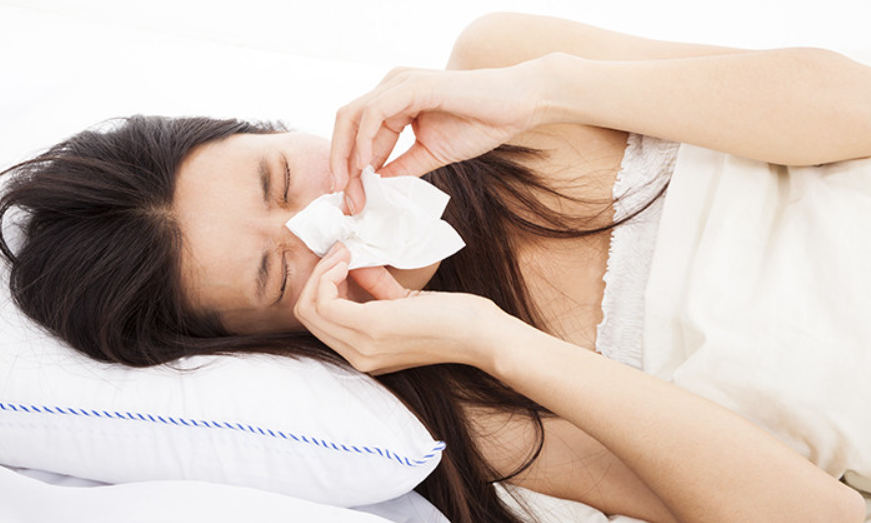
Spring is warm, and it is the high incidence season of allergic rhinitis. Itchy nose, sneezing, runny nose, stuffy nose... Why allergic rhinitis repeated repeated old can not get better?
Distinguish between allergic rhinitis and cold
Look at four main points
Allergic rhinitis is a non-infectious chronic inflammatory disease of nasal mucosa mediated mainly by IgE (serum immunoglobulin E) after human exposure to allergens (also known as allergens). Spring, when flowers are in full bloom, can be a "disaster" for some people with allergic rhinitis. These patients often have itchy noses, sneezing, runny nose, nasal congestion and even breathing difficulties due to the spread of spring pollen.
In addition to pollen, dust mites, mold and other inhaled allergens can also cause allergic rhinitis.
Allergic rhinitis symptoms a little like a cold, how to distinguish?
There are four main differences: first, the symptoms of a cold will be relieved in about 7 days, but allergic rhinitis may last for 2 weeks or more, and usually does not heal itself; Second, colds are often accompanied by cough, fever, muscle pain and other systemic symptoms, but allergic rhinitis will not; The third is a cold runny nose, the beginning can be a clear watery nose, the later is generally yellow viscous pus; Fourth, taking cold medicine can relieve sneezing, nasal congestion, runny nose and other symptoms caused by colds, but it is useless for allergic rhinitis.
Rhinitis is no small problemDon't ignore it.
The harm of allergic rhinitis is not only the nose itchy, sneezing, runny nose, stuffy nose, not actively treated severe allergic rhinitis may trigger asthma.
An acute attack of asthma can be life-threatening.
The swelling of nasal mucosa during the attack of allergic rhinitis will also affect the drainage of sinuses, complicated with sinusitis and nasal polyps.
When the nasal mucosa is swollen, the eustachian tube between the nose and the ear will swell, causing the eustachian tube to become blocked, resulting in secretory otitis media. So don't dismiss it as a small thing.
Treatment:
The three drugs commonly used have very different effects
The treatment principle of allergic rhinitis is "combination of prevention and treatment, four in one", that is, environmental control, drug therapy, immunotherapy and health education.
During the onset of allergic rhinitis, nasal glucocorticoids, antihistamines, antileukotrienes and other drugs can be used. All three drugs are strongly recommended as first-line drugs in clinical guidelines, but each has its own role.
For example, nasal glucocorticoids can significantly improve all nasal symptoms; Oral antihistamines work quickly and for a long time to relieve symptoms such as nasal itchiness, sneezing and runny nose. They are also effective for complicated eye symptoms, but their effect on nasal congestion is limited.
In addition, nasal irrigation is a safe, convenient, and inexpensive treatment that is often used as an adjunct to the treatment of inflammatory diseases of the nasal cavity and sinuses. During the onset of allergic rhinitis, in addition to nasal glucocorticoids and other drugs, nasal irrigation can be performed.
immunotherapy
For whom?
Patients with clear allergens can be treated with specific immunotherapy. Immunotherapy is currently the only first-line treatment for the cause of allergic rhinitis, with both short - and long-term efficacy, and can alter the natural course of the disease and prevent allergic rhinitis from developing into asthma.
The common clinical allergen immunodesensitization treatment methods include subcutaneous injection method and sublingual containing method, the total course of treatment is about 3 years.
Current immunotherapy, mainly for patients with dust mites and/or house dust mites allergens, can be used as long as the diagnosis is clear. The subcutaneous injection is usually performed in patients over 5 years of age, and the sublingual injection generally requires patients over 4 years of age.
However, it is important to note that patients who are pregnant, have severe or uncontrolled asthma, and have irreversible respiratory obstructive disease should not be treated with immunotherapy.
For patients with persistent moderate to severe allergic rhinitis or nasal structural lesions, the effect of drug therapy and desensitization therapy is ineffective, seriously affecting work and study, surgery is recommended.
Daily life does this
Decline the "old friend"
Pollen, dust mites are everywhere, how to pay attention to daily life?
Patients with allergic rhinitis should first avoid contact with allergens. Patients with pollen allergy should close doors and Windows at the peak of pollen dissemination and minimize going out; Consider wearing a mask during the peak period of pollen dispersion; Avoid planting flowers indoors.
Dust mite allergy patients, keep the room clean, air circulation; Air conditioning will soon come in handy, don't forget to clean the filter in advance, and clean the back regularly; It is recommended not to use carpet in the room; Seasonal clothes while the weather is good, quickly take out to dry before wearing; Be sure to keep away from stuffed animals and prohibit pets from entering the bedroom; Quilts and MATS are regularly exposed to the sun for more than three hours.

